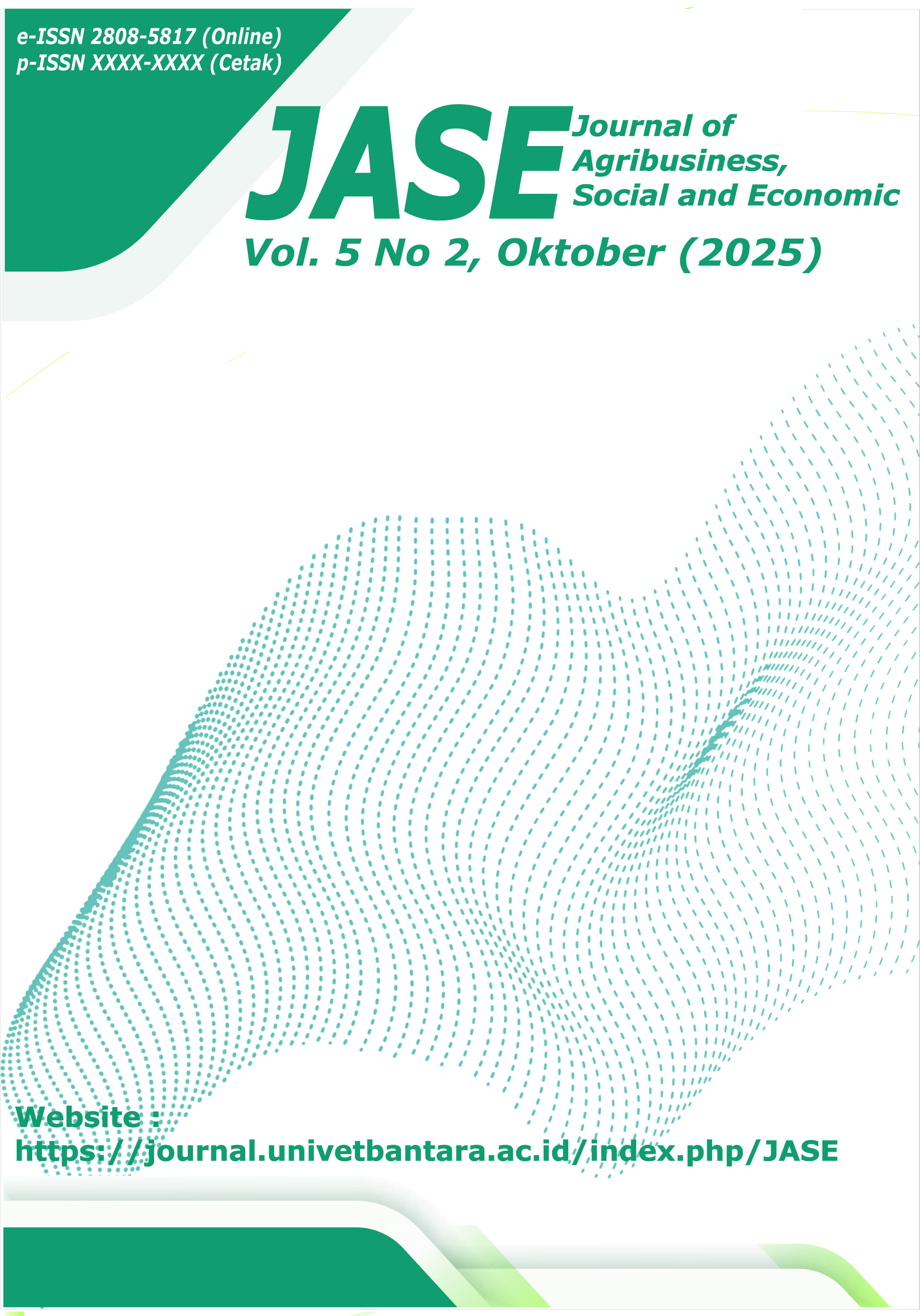Pengetahuan dan Sikap Petani terhadap Keberadaan Industri di Kabupaten Batang serta Dampaknya pada Praktik Keberlanjutan Pertanian
DOI:
https://doi.org/10.32585/jase.v5i2.7434Abstract
This study aims to analyze the effect of farmers’ knowledge on attitude and the effect of attitude on farming sustainability practices in Batang Regency. The research is motivated by the establishment of the Batang Special Economic Zone (SEZ) in 2025, which influences farmers’ behavior near SEZ. The research sample consisted of 200 farmers from Gringsing, Limpung, and Tulis sub-districts, which are closest to Batang SEZ This number met the minimum requirement of 170 respondents (the number of indicators multiplied by 10). Primary data were collected through interviews using questionnaire in July 2025. The study employed a quantitative approach using Structural Equation Modeling–Partial Least Squares (SEM-PLS). The results show that the Knowledge variable has a significant positive effect on Attitude (T-statistic = 11.333 > 1.960; path coefficient = 0.570). Furthermore, Attitude significantly influences Farming Sustainability (T-statistic = 4.669 > 1.960; path coefficient = 0.270).
Downloads
Downloads
Published
How to Cite
Issue
Section
License
Copyright (c) 2025 Avivah Rahmaningtyas, Irma Fauziah, Muhammad Luthfie Fadhilah

This work is licensed under a Creative Commons Attribution-NonCommercial-ShareAlike 4.0 International License.
Authors who publish with the Journal of Agribusiness, Social and Economic agree to the following terms:
- Authors retain copyright and grant the journal the right of first publication with the work simultaneously licensed under a Creative Commons Attribution License (CC BY-SA 4.0) that allows others to share the work with an acknowledgment of the work's authorship and initial publication in this journal.
- Authors are able to enter into separate, additional contractual arrangements for the non-exclusive distribution of the journal's published version of the work (e.g., post it to an institutional repository or publish it in a book), with an acknowledgment of its initial publication in this journal.
- Authors are permitted and encouraged to post their work online (e.g., in institutional repositories or on their website) prior to and during the submission process, as it can lead to productive exchanges, as well as earlier and greater citation of published work.


